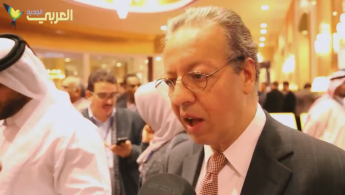Talks about talks in Yemen
Rival groups in Yemen have met in the capital Sanaa with the UN's special adviser to Yemen, Jamal Benomar, it has emerged.
"Security, the economy, and the continuation of the political process are all interrelated," he told the political heads.
Benomar had called the meeting in a desperate attempt to accelerate the implementation of the Peace and National Partnership Agreement.
"Preventing the collapse of the country's economy requires the prompt implementation of the remaining terms of the Peace and National Partnership Agreement, including security terms, and ending all violations," he said.
This was Benomar's 35th visit to Yemen, during a period in which Yemen has been teetering on the edge of full-scale civil war, while sectarian divisions, southern separatism, and armed groups ravage the peninsular state.
Benomar spoke to al-Araby al-Jadeed about the latest round of negotiations, on the sidelines of a conference organised by Doha's Arab Centre for Research and Policy Studies about economic and political regional shifts in the GCC.
"I regret the slow implementation and violation of the agreement, but the only way out of the current crisis is to implement it," he said.
The meeting was a follow-up to the agreement signed in September, and included Prime Minister Khaled Bahah and the former secretary-general of the national reconciliation dialogue conference, Ahmed bin Mubarak, who is now working in the president's office.
| I regret the slow implementation and violation of the agreement, but the only way out of the current crisis is to implement it. - Jamal Benomar |
Mubarak was selected as prime minister until the Houthis protested against the southern politician's appointment.
Benomar told Mubarak that the security situation and the economy were the main challenges facing Yemen's current government.
"The government is aware of the need to deal with the security situation as soon as possible," Mubarak responded. Benomar then reportedly pressed Mubarak again about the fragile partnership agreement.
The gruff exchange might be in part related to alleged statements made by Benomar about Yemen's president, Abd Rabbuh Mansour Hadi.
Asked about the issue, the peacemaker was quick to deny any controversial statements.
"The Yemeni president represents legitimate power," he said. "We are working closely to boost the political process. The reported statements are false and fabricated."
This is an edited translation from our Arabic edition.



